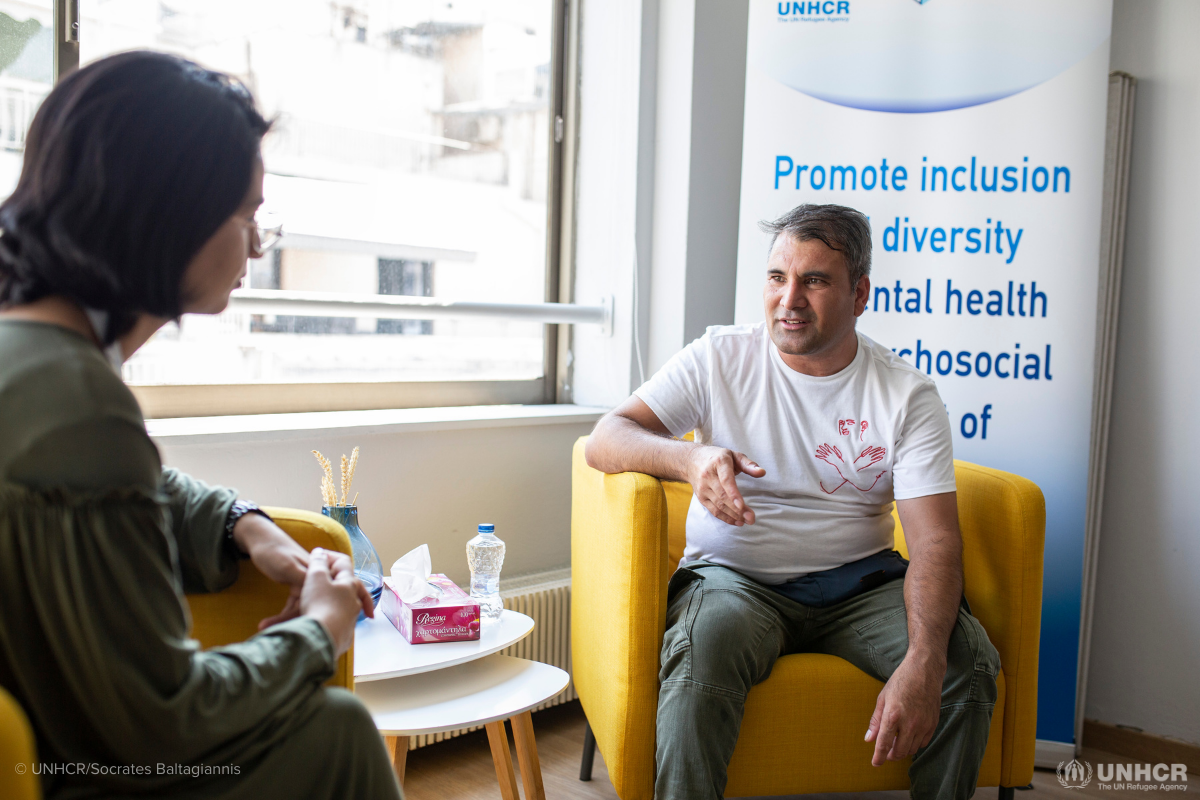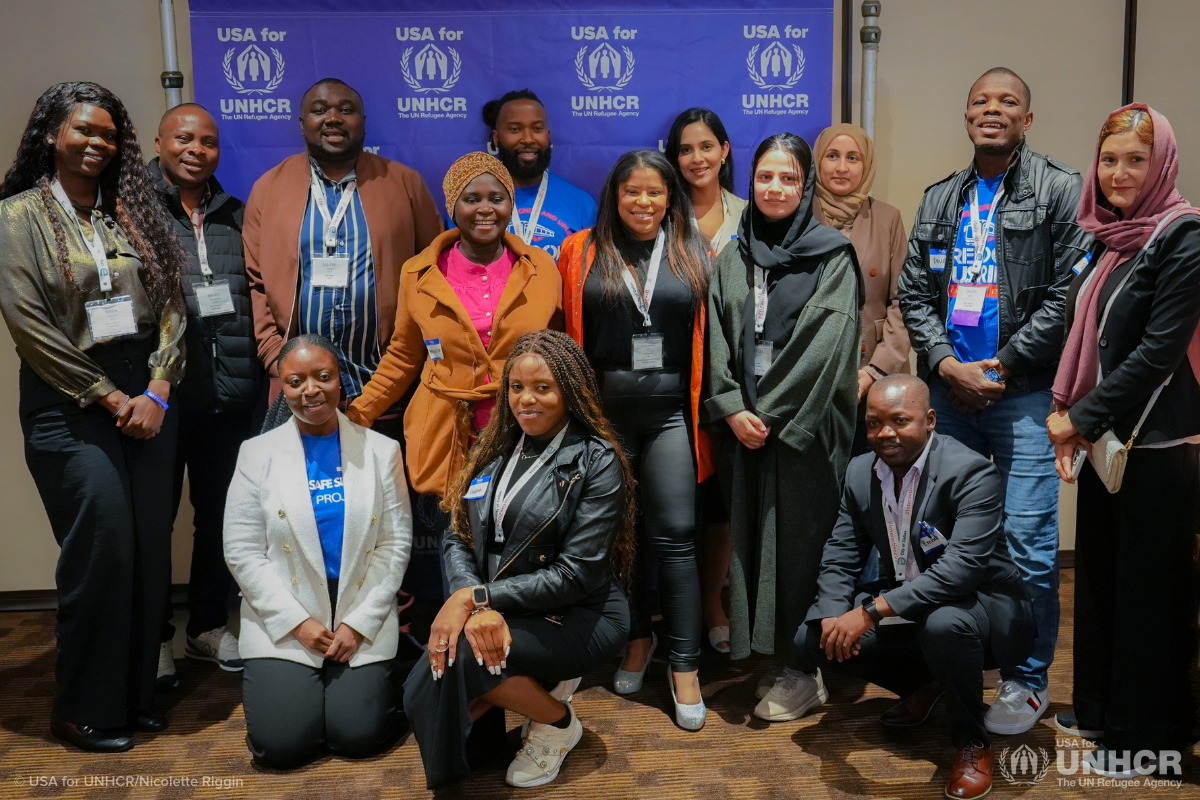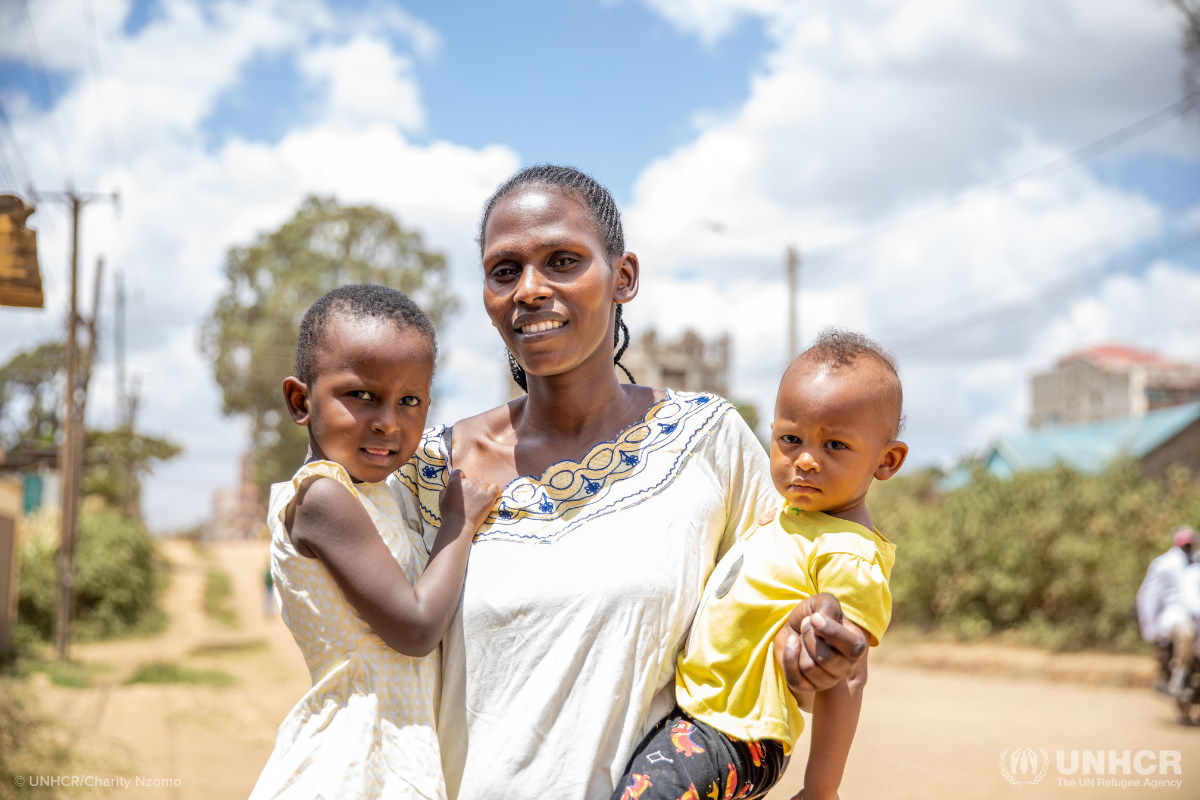Meet four individuals providing mental health support to refugees
People who have been forced to flee their homes face harsh conditions that place their mental health under significant stress. They are often exposed to trauma, complex stresses and challenges that affect their wellbeing during their journeys to safety and when adjusting to new environments.
While refugees, internally displaced and stateless people often show remarkable resilience in the face of loss, grief and trauma, some need extra support to help them cope and move forward with rebuilding their lives. That’s where UNHCR, the UN Refugee Agency, comes in.
UNHCR's Mental Health and Psychosocial Support (MHPSS) programs build the capacity and skills of local health staff and communities and provide assistance in managing mental health disorders in healthcare facilities. UNHCR strives for the integration of MHPSS in medical services for refugees and advocates for the inclusion of refugees into national mental health systems.
Meet four individuals who are helping displaced people through MHPSS and other mental health initiatives.
Nur Kalam

As a child in Myanmar, Nur Kalam dreamed of becoming a doctor. Now the 21-year-old Rohingya refugee serves as an MHPSS community para-counselor for Rohingya refugees in the world's largest refugee settlement in Cox's Bazar, Bangladesh.
“My favorite part of my job is helping my community solve their own problems through teaching them mental health tools."
Nur is one of 100 community counselors—80 of whom are refugees— working with UNHCR and partners to provide mental health and psychosocial support to the nearly one million Rohingya refugees forced to flee Myanmar who now reside in Cox’s Bazar.
Ioanna & Sofia

Facilitated by UNHCR partner Parksis, Ioanna and Sofia, both psychologists and caseworkers, lead sessions to empower refugee children in Greece.
“Our goal is to observe children’s behaviors and then inform and educate them about issues that [they] are facing in their daily lives. We want to empower children about issues of their concern,” Ioanna explains.
With the support of an interpreter, they employ creative and interactive methods to educate refugee children about their fundamental rights and other critical issues, such as their relationship with their parents, bullying, empathy and child labor.
Sara

Sara, a community psychosocial worker, works to support refugees like Mahmoud by providing psychosocial support and connecting them with relevant services through UNHCR partner EPAPSY’s Community Psychosocial Workforce program.
“It’s not about financial assistance. It’s about someone being always there to listen to you carefully. I’m alone in Greece. Whenever I come and talk to the people here, I feel free to express myself and happy knowing that someone is there to listen,” Mahmoud says.
Forced to flee his home in Afghanistan, Mahmoud arrived alone in Greece seven years ago in search of safety. He left his wife and children behind but holds onto the dream that he can one day have his own house and be reunited with them.
Due to a medical issue, he has had difficulty securing a job, adding extra stress to his life. Thanks to advice from a friend, who told him about EPAPSY and provided him with the helpline number, he was able to reach out for support and for the past months has attended regular sessions with Sara, which have greatly improved his quality of life.
How to help…
Ensuring access to mental health care and protecting the psychosocial well-being of refugees is an essential part of UNHCR's strategy to protect displaced people, promote public health and provide education. By becoming USA for UNHCR’s newest monthly donor, you can help ensure


